Are the ‘healthy’ fizzy drink options any good?
September 2021 | Reading time: 4 minutes
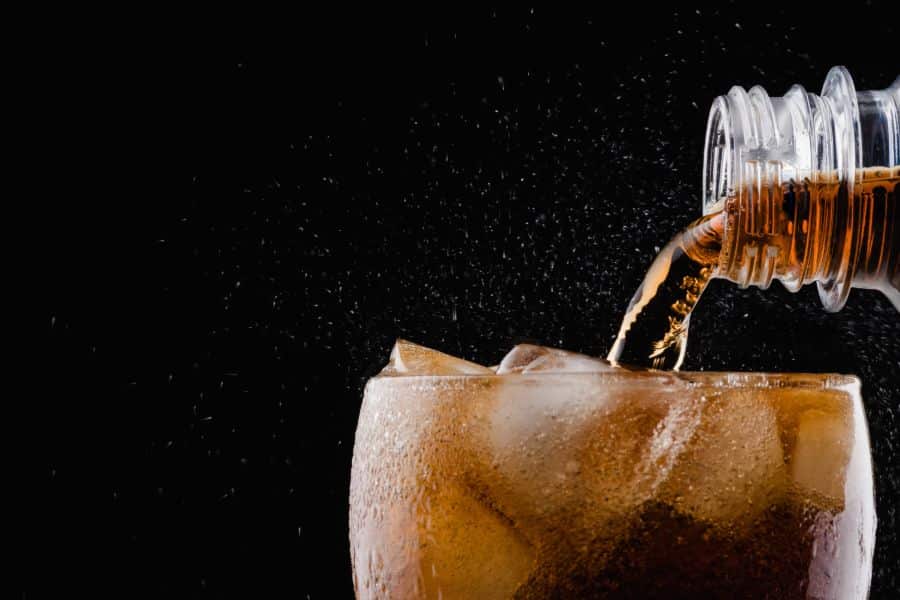
Table of Contents
There are countless ‘healthy’ fizzy drink options in the market, but do they actually offer any benefits over their full-fat counterparts?
At the end of each of our cryolipolysis sessions, you will be firmly instructed to stay consistently hydrated, drinking up to 2-3 litres of fluids daily. The fact remains that there is no substitute for water. However, too much of anything (no matter how sensible) can eventually start to feel tiresome. When told to drink lots of fluids, many of us tend to turn to other pleasant-tasting beverages like juice, smoothies, tea, and carbonated beverages. After all, they are all drinkable, tasty liquids that help maintain the body’s hydration. Although none are quite precisely the right substitutes for water, it is the fizzy drinks that have the worst reputation. Over the years, carbonated drinks have acquired notoriety for their high sugar content and contribution to health hazards such as obesity, diabetes, and heart disease, among others. The high-fructose corn syrup found in the most popular ones raises the blood sugar levels while swiftly turning into fat. Obviously, there have also been claims highlighting the health benefits of soft drinks; one time, the American Heart Association stated that the amount of caffeine found in sodas tends to boost brain function. Even if one were to focus on the benefits of these beverages, the risks still outweigh the benefits.
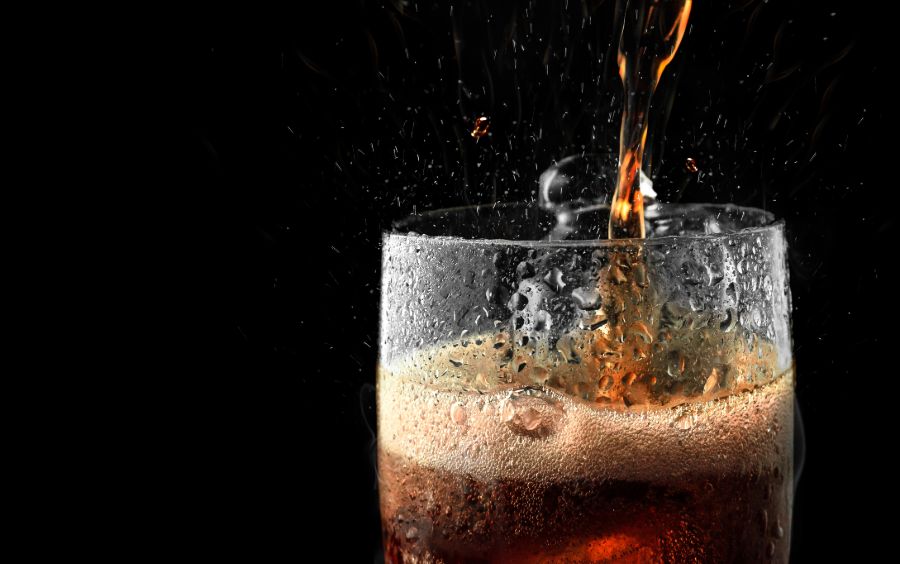
The ‘healthier’ soft drink choices
In order to break the taboo on soft drinks and provide consumers with more choices, manufacturers have been selling ‘diet’ or ‘healthy’ alternatives alongside their full-flavour fare for quite some time now. If looked at closely, these healthy substitutes mostly replace the sugar content with artificial sweeteners. Replacing sugar with the likes of aspartame and saccharin is not without controversy and distrust, either.
The diet drinks
The most common and longest existing low-sugar alternatives are the diet carbonated beverages. These are ideal for consumers who have health conditions that require them to restrict sugar intake. They are also pretty much perfect for the health-conscious folk who are fond of the sweet, fizzy taste but are not keen on ingesting the extra calories. Plus, there is substantially less decay in terms of dental health due to considerably less (or completely absent) sugar. Nevertheless, it is not all pros either. The artificial sweeteners in these drinks activate the brain’s reward centres, which otherwise react to sugar. But they do not provide any significant calories, thus no energy either. Subsequently, it becomes difficult for the brain to regulate energy. According to a 2014 study, people who are used to drinking sugarless or low-sugar soft drinks tend to consume more solid foods to achieve the calories compared to drinkers of sugary drinks.
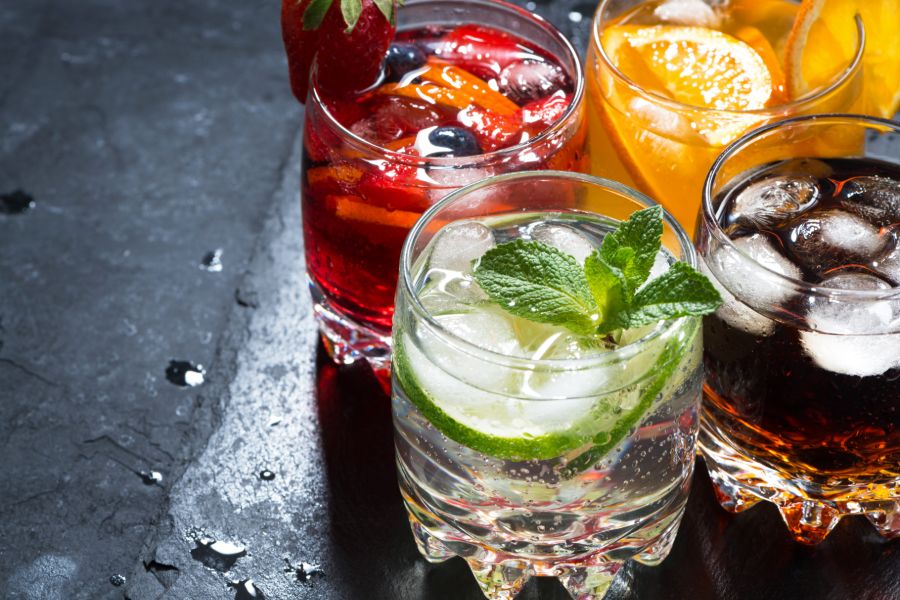
Soft drinks with added vitamins
Many soft drinks, of both regular and diet varieties, are marketed as health drinks. These fizzy beverages are fortified with various vitamins like B3, B6, B12 and E. While these drinks may provide you with nutrients and can contribute to your overall wellbeing, they still present the same drawbacks when consumed excessively as soft drinks without vitamin enrichment.
Drinks with ‘natural’ sweeteners
Another sugar-free/low-sugar soft drink option is the ones labelled as containing ‘natural’ sweeteners. These drinks supposedly contain fruit juice, cane sugar, or naturally occurring sweeteners such as stevia. Though relating ‘natural’ with ‘healthy’ is instinctive, there is no adequate evidence that shows that ‘natural’ sugars or sweeteners are safer for your health than high-fructose corn syrup. Moreover, any type of added sugar, ‘natural’ or otherwise, when taken excessively, will lead to diabetes, obesity, and dental issues, among other problems. At the end of the day, water is still the best and most neutral choice to stay hydrated. However, if you want to mix things up with soft drinks here and there, be sure to do so in moderation. Whether the soft drinks are full-fat or diet, consuming either in excess will result in risks to your health.
Related Articles

How to prevent skin damage in the winter
The festive season of baubles, presents, and merrymaking may be the worst for your skin, but it does not have...

Crafting Your Dream Lifestyle: Tips for Living Your Best Life
Defining Your PrioritiesThe first step in crafting your dream lifestyle is to identify what truly matters to you. Take some...

Water Aerobics – Get Fit in Water
Water aerobics has a bit of a reputation for being something that the elderly do but in fact, it's a...
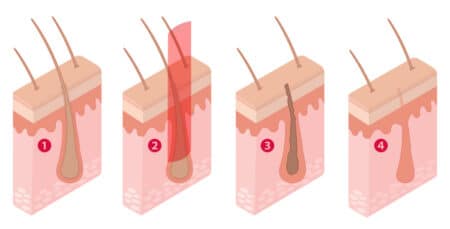
Laser Hair Removal Birmingham
Permanent laser hair removal at VIVO Body Studio Birmingham At VIVO Body Studio Birmingham, we use advanced and effective laser...
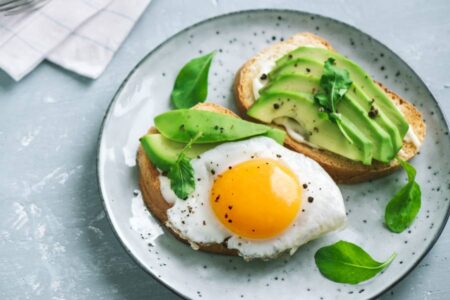
Intermittent fasting: Should you skip breakfast?
Can intermittent fasting really help you lose weight? Let’s take a look at the possible advantages, or lack thereof, of...

Top 3 Recreational Aspirations for Over 30’s
In the hustle and bustle of life, we often forget to make room for recreation and leisure, leading to increased...

Living Your Best Life: Secrets to an Awesome Lifestyle
Embrace a Positive MindsetThe key to an amazing lifestyle starts with your mindset. Cultivate a positive outlook by practicing gratitude,...
The Best Fitness Trackers
Which fitness tracker is right for you? We live in a society that is becoming ever more obsessed with health...

Health benefits music offers us
Music is an excellent form of entertainment and an even grander medium for creative expression, and it offers listeners some...

The 5 Weirdest Fat Reduction Methods from History
Throughout history, humans have concocted some truly bizarre methods in their quest to shed unwanted pounds. From the peculiar to...
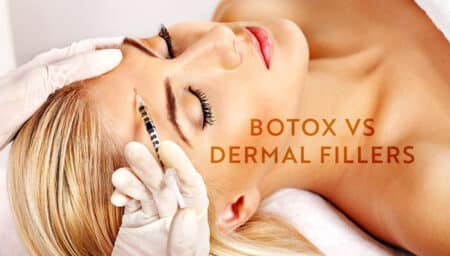
What’s the difference between Botox and Dermal Filler Injections?
Both can significantly reduce the signs of ageing, so what's the difference between Botox and Dermal Filler injections? (more…)

Nicotine Replacement Therapy: Does it work?
We take a brief look at the types and effectiveness of Nicotine Replacement Therapy and how the skin benefits from...
Happy Customers
16,453 Reviews and CountingWill be coming for more sessions soon. ❤️❤️
Gemma was friendly and professional, looked after me really well.
During the consultation everything was explained to me clearly.
I will come back soon for more treatments.
 close
close



